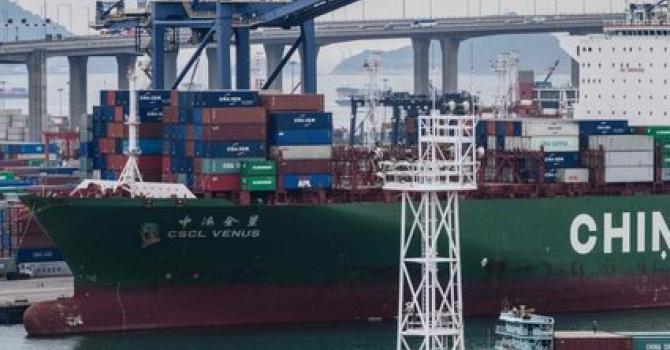SCMP: Green policies in focus as China’s rise to an ecological civilisation continues apace
Christine Loh says environmentally conscious development is one of the most important aspects to watch out for at the upcoming party congress, given the leadership’s desire to shift discourse away from industrial growth
The leadership emerging from China’s 19th Party Congress will pay a lot of attention to comprehensive environmental protection. The party already accepts that the country’s environmental conditions need urgent improvements. It will take considerable time to improve air, water and soil qualities substantially, yet the commitment to date is nevertheless encouraging.
President Xi Jinping is explicit that “ecological civilisation” is the party’s long-term approach to domestic development. Party schools already provide courses for cadres on implementing this.
The concept envisions better planning and carrying out future development within China’s ecological capacity and rectifying degradation. It prioritises pollution reduction, efficient use of natural resources, food security, climate change mitigation and adaptation, to address development-related problems.
To achieve good results, significant reform is required across the bureaucracy to chart ecologically sound policies and regulation, set appropriate goals and track outcomes. China’s record over the past few years speaks for itself.
On a theoretical level – always important for the party – ecological civilisation needed to be put on a par with economic, political, cultural and social progress, which was done at the 18th Party Congress in 2012.
With the new ideology in place, the government implemented many major reforms that included issuing compensation guidelines for environmental damage, stronger environmental law enforcement, expanding clean energy production and use, creating national parks, nominating senior officials to protect rivers, restricting industrial projects and promoting green financing to raise funds for China’s transition.
Closest to home for the top leadership is to integrate Beijing, the Tianjin municipality and Hebei province into a giant conurbation, a plan first articulated by the National Reform and Development Commission in 2014. It envisages a new type of urbanisation model, including integrated spatial and “smart” city planning, efficient use of natural resources and environmental protection that also achieves social equity.
Premier Li Keqiang had much to say about the environment in the government’s work report at the National People’s Congress in March. Achievements included monitoring all major sources of industrial pollution online. Moreover, Li heads the Yangtze River Economic Belt development planning towards 2030, encompassing 11 provinces where the environment is a key aspect of the work.
Another significant political signal from the party congress came from the third-ranking official, Zhang Dejiang, head of the NPC’s Standing Committee. He emphasised dealing with solid waste management through various inspection visits in August and September, and called on local authorities to speed up work on waste classification and management in rural and urban areas, as well as improve the handling of hazardous waste and China’s overall recycling efforts.
As for the Greater Bay Area plan, the Guangdong leadership will no doubt follow ecological civilisation principles in pursuit of further development. Like sustainable development, ecological civilisation is a flexible, evolving concept. By adding ecological civilisation to its thinking, Hong Kong ,can contribute much to national and regional development.
The national leadership is also reshaping the development discourse away from economic and industrial growth to building an ecological civilisation, which the leadership sees as crucial to bring back China’s cultural pride and meet the rapidly rising demands of the people for health and well-being.
This significant policy and discursive change also has diplomatic consequences. A highly polluted, degraded country has no appeal on the world stage, and China wishes to project rejuvenation and thought leadership globally through its “Belt and Road Initiative”, and international negotiations on climate change.
The rise of environmentally conscious development is one of the most important aspects to watch when the party congress opens on October 18.




